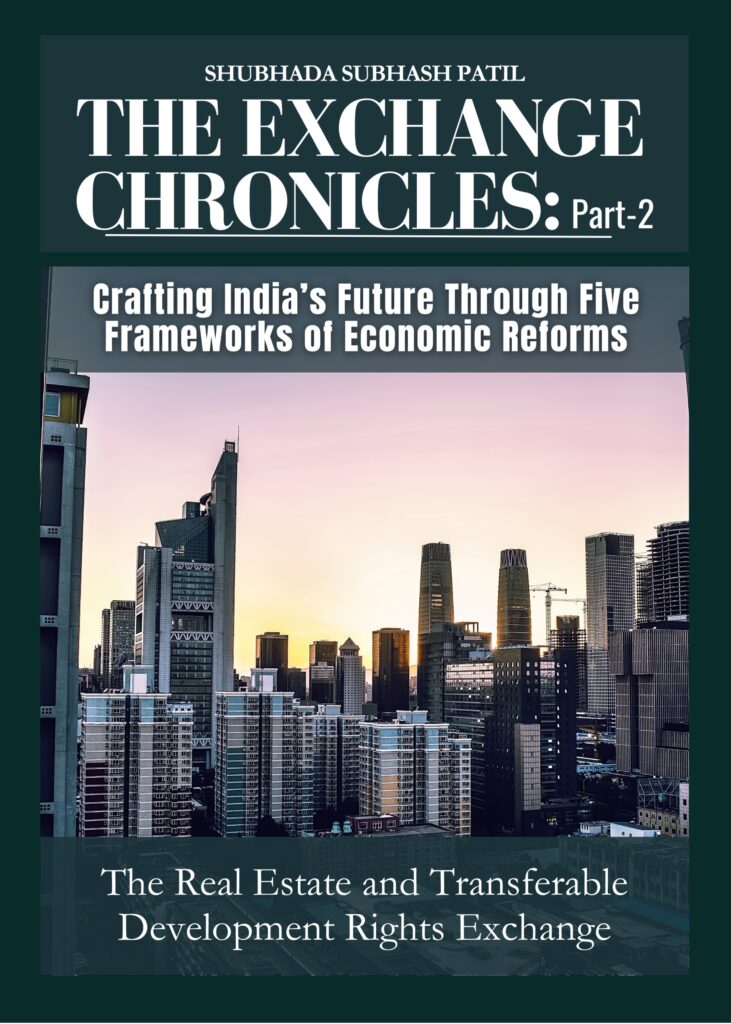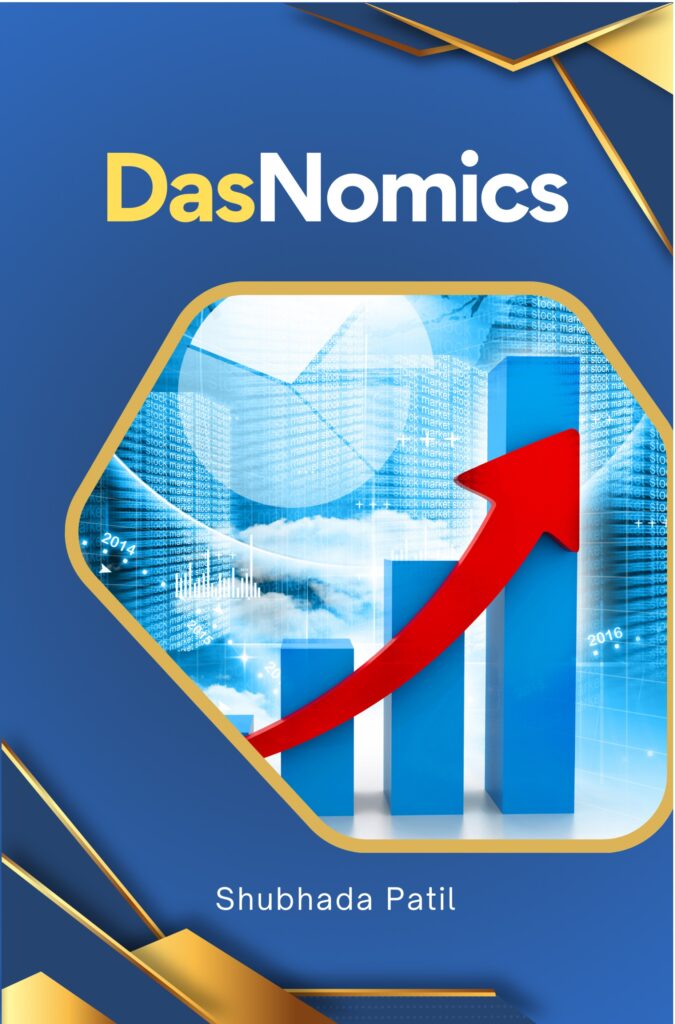
The Exchange Chronicles
Part 1
Crafting India’s Future Through Five Frameworks of Economic Reforms
This book offers a groundbreaking framework for creating a Real Estate and Transferable Development Rights (TDR) Exchange in India, blending advanced auction theories, blockchain technology, and dynamic pricing models. It addresses critical urban challenges, streamlines TDR processes, and introduces sustainable and transparent solutions for policymakers, developers, and urban planners. With a focus on equity, innovation, and environmental accountability, this book is a must-read for those shaping the future of India’s urban landscapes.

The Exchange Chronicles
Part 2
Crafting India’s Future Through Five Frameworks of Economic Reforms
This book offers a groundbreaking framework for creating a Real Estate and Transferable Development Rights (TDR) Exchange in India, blending advanced auction theories, blockchain technology, and dynamic pricing models. It addresses critical urban challenges, streamlines TDR processes, and introduces sustainable and transparent solutions for policymakers, developers, and urban planners. With a focus on equity, innovation, and environmental accountability, this book is a must-read for those shaping the future of India’s urban landscapes.

DasNomics
DasNomics: Shaktikanta Das and the Economics of Resilience is an in-depth exploration of the transformative economic policies and leadership of Shaktikanta Das, the 25th Governor of the Reserve Bank of India (RBI). This book meticulously examines how Das, a seasoned policymaker, steered the Indian economy through some of the most challenging global crises—including the COVID-19 pandemic, the Russia-Ukraine conflict, global monetary tightening, and inflationary shocks—while ensuring macroeconomic stability, financial inclusion, and sustained growth.
Through a rigorous macroeconomic analysis, DasNomics presents a structured evaluation of key policy decisions that shaped India’s economic trajectory. The book delves into critical themes, such as:
• Exchange Rate Management and Foreign Exchange Reserves: How Das ensured rupee stability and maintained reserves exceeding $600 billion, shielding India from external shocks.
• Monetary Policy and Inflation Targeting: Analyzing the RBI’s strategic rate adjustments and liquidity measures that kept inflation within manageable limits while supporting economic recovery.
• Trade and Global Integration: The role of rupee-based trade settlements, foreign direct investment (FDI) liberalization, and participation in global value chains (GVCs) to strengthen India’s external sector.
• Digital Financial Infrastructure: How RBI under Das pioneered UPI expansion, Central Bank Digital Currency (CBDC), fintech regulation, and digital banking frameworks to drive financial inclusion.
• Rescue and Reform of MSMEs and Banking Sector Stability: Examining the Emergency Credit Line Guarantee Scheme (ECLGS) and RBI’s stress-testing frameworks that fortified India’s financial institutions.
• Gold as a Strategic Asset: The evolution of sovereign gold reserves, gold-backed bonds, and digital gold as tools for economic resilience.
With a strong foundation in macroeconomic models and principles, DasNomics contextualizes these policies within frameworks such as the Impossible Trinity, Mundell-Fleming Model, Financial Accelerator Theory, and Portfolio Balance Approach. The book provides empirical evidence, policy insights, and comparative global perspectives, positioning Das’s economic vision within the broader scope of central banking and monetary governance.
Upcoming Book
Idealist Market Economics Theory
Shubhada Subhash Patil’s Idealist Market Economics Theory is a groundbreaking framework that redefines traditional market systems by aligning economic efficiency with ethical, social, and environmental ideals. This theory is rooted in the belief that markets can be designed to serve as instruments of equitable growth, fostering transparency, accountability, and long-term sustainability.
At its core, the Idealist Market Economics Theory emphasizes:
- Advanced Auction Mechanisms: Introducing fairness and efficiency through dynamic pricing models and auction theories, such as iterative Vickrey mechanisms, that eliminate speculation and ensure truthful bidding.
- Tokenization of Property Rights: Leveraging blockchain technology to democratize access to resources like Transferable Development Rights (TDRs), ensuring transparent and secure transactions.
- Internalization of Externalities: Incorporating environmental and social costs into market pricing, balancing profit motives with societal and ecological well-being.
- Regulatory-Technology Synergy: Creating frameworks that combine robust legal structures with advanced technologies like AI and IoT for compliance, monitoring, and optimization.
- Equity and Accessibility: Ensuring underserved communities and stakeholders have fair access to market resources, fostering inclusivity in economic opportunities.
The Idealist Market Economics Theory challenges conventional market dynamics, advocating for systems that go beyond mere profit maximization to prioritize the collective good. It is a vision for markets as engines of reform, innovation, and sustainability, resonating with Shubhada’s mission of creating Advanced Exchanges that drive meaningful economic change.